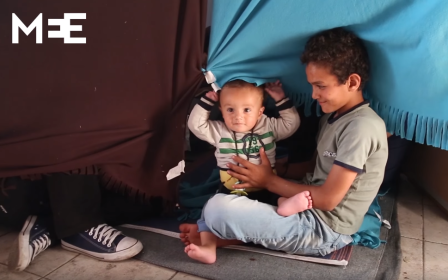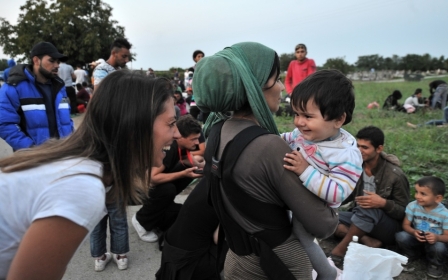Hungary PM's anti-EU revolt hit by low migrant poll turnout

Hungary's populist Prime Minister Viktor Orban suffered a blow on Sunday in his revolt against the EU after low voter turnout voided his referendum aimed at rejecting a contested migrant quota plan.
Although 98 percent of those who voted supported his bid to reject the plan, turnout reached just 43 percent of the eight-million-strong electorate, falling short of a 50 percent threshold, the National Election Committee said after almost all the ballots had been counted.
Opposition figures swiftly called on Orban to step down over the vote, after rights groups had accused him of whipping up anti-refugee fears despite there being only a few hundred asylum-seekers in Hungary.
But the firebrand leader had earlier vowed there would be "legal consequences" regardless of the outcome, as he downplayed the significance of the low turnout. "Brussels cannot force its will on Hungary," he told his supporters in Budapest.
"I will propose to change the constitution, which shall reflect the will of the people. We will make Brussels understand that it cannot ignore the will of Hungarian voters," he said.
The president of the European Parliament, meanwhile, accused Hungary of playing a “dangerous game” by holding the referendum.
Schulz told Germany’s Funke newspaper group that the referendum challenges the legitimacy of European laws.
He also suggested that countries that fail to show solidary with the rest of the EU on the migrant issue may see their financial support from the bloc cut, the Washington Post reported.
Schulz called on European leaders to make clear to Eastern European countries that “solidarity isn’t a one-way street,” but rejected calls to eject Hungary from the EU, the Post said.
Orban's right-wing government led an expensive media offensive urging voters to spurn the EU's plan, which seeks to share refugees around the 28 member states via mandatory quotas without the consent of national parliaments.
"A valid referendum is always better than an invalid one, but the legal consequences will be the same," Orban said earlier on Sunday.
"There is only one condition for this: that there are more 'No' votes than 'Yes' votes."
Orban has emerged as the standard-bearer of those opposed to German Chancellor Angela Merkel's "open-door" policy, in the wake of the bloc's worst migration crisis since World War II.
Opposition parties and rights groups had called on Hungarians to boycott the referendum or spoil their ballot.
Antagonistic debates
The EU proposal - spearheaded by Germany and approved by most EU governments last year after antagonistic debates - seeks to ease pressure on frontline countries Italy and Greece, the first port of arrival for most refugees.
But implementation has been slow.
Eastern and central European nations vehemently oppose the plan aimed at relocating 160,000 people, many of who fled war in Syria.
Even as Hungarians voted, neighbouring Austria's Foreign Minister Sebastian Kurz said the EU should stop clinging to its troubled plan.
"The target is totally unrealistic," he told the German daily Welt am Sonntag, warning that disagreements over the plan could threaten "the cohesion of the entire European Union."
Hungary has not accepted a single one of the 1,294 refugees allocated to it under the scheme and instead joined Slovakia in filing a legal challenge against it.
In an editorial, Orban warned on Saturday that Hungarians had "a duty" to fight the failed "liberal methods" of the "Brussels elite."
More than 400,000 refugees trekked through Hungary toward northern Europe in 2015 before Hungary sealed off its southern borders with razor wire in the autumn and brought in tough anti-migrant laws, reducing the flow to a trickle.
Other countries on the so-called Balkan migrant trail followed suit, leaving some 60,000 migrants stranded in Greece.
Many of those refugees live in grim conditions in camps dotted around the Aegean islands and the mainland, desperate to continue their onward journey.
The EU said last week it hoped to relocate half of them by the end of 2017.
A deal struck in March with Ankara to halt the influx looks shaky in the wake of a coup attempt in Turkey in July.
New MEE newsletter: Jerusalem Dispatch
Sign up to get the latest insights and analysis on Israel-Palestine, alongside Turkey Unpacked and other MEE newsletters
Middle East Eye delivers independent and unrivalled coverage and analysis of the Middle East, North Africa and beyond. To learn more about republishing this content and the associated fees, please fill out this form. More about MEE can be found here.




